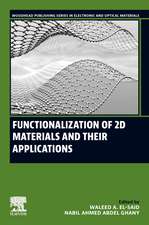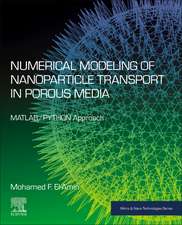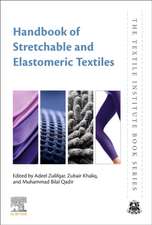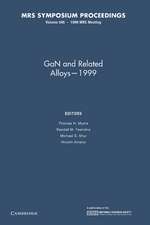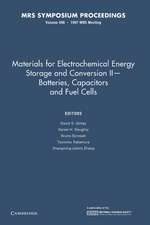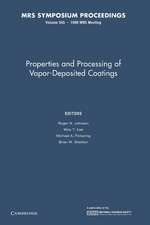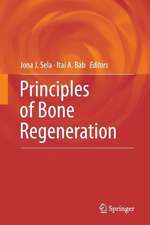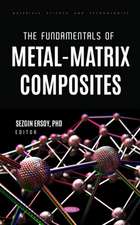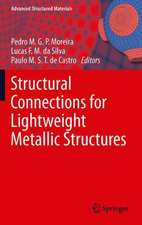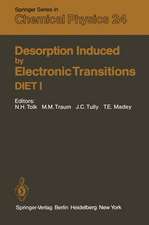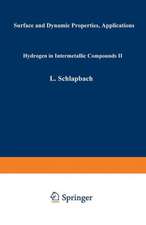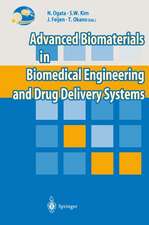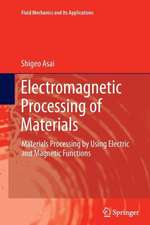Computational Nanotoxicology: Challenges and Perspectives
Editat de Agnieszka Gajewicz, Tomasz Puzynen Limba Engleză Hardback – 26 dec 2019
Preț: 1127.93 lei
Preț vechi: 1375.53 lei
-18% Nou
Puncte Express: 1692
Preț estimativ în valută:
215.84€ • 230.80$ • 179.95£
215.84€ • 230.80$ • 179.95£
Carte tipărită la comandă
Livrare economică 17 aprilie-01 mai
Preluare comenzi: 021 569.72.76
Specificații
ISBN-13: 9789814800648
ISBN-10: 9814800643
Pagini: 568
Ilustrații: 114
Dimensiuni: 152 x 229 x 32 mm
Greutate: 1 kg
Ediția:1
Editura: Jenny Stanford Publishing
Colecția Jenny Stanford Publishing
ISBN-10: 9814800643
Pagini: 568
Ilustrații: 114
Dimensiuni: 152 x 229 x 32 mm
Greutate: 1 kg
Ediția:1
Editura: Jenny Stanford Publishing
Colecția Jenny Stanford Publishing
Public țintă
Academic and Professional Practice & DevelopmentCuprins
1. Modeling of Nanomaterials for Safety Assessment: From Regulatory Requirements to Supporting Scientific Theories 2. Current Developments and Recommendations in Computational Nanotoxicology in View of Regulatory Application 3. Physicochemical Properties of Nanomaterials from in silico simulations: An Introduction to Density Functional Theory and Beyond 4. Bionano Interactions: A Key to a Mechanistic Understanding of Nanoparticle Toxicity 5. From Modeling Nanoparticle–Membrane Interactions toward Nanotoxicology 6. Descriptors in Nano-QSAR/Nano-QSPR Modeling 7. Nano-QSAR for Environmental Hazard Assessment: Turning Challenges into Opportunities 8. Read-Across to Fill Toxicological Data Gaps: Good Practice to Ensure Success with Nanoparticles 9. Computational Methods of Interspecies Nanotoxicity Extrapolation: A Step toward the Future 10. On Error Measures for Validation and Uncertainty Estimation of Predictive QSAR Models 11. Green Toxicology Meets Nanotoxicology: The Process of Sustainable Nanomaterial Development and Use 12. Issues for and Examples of Computational Design of “Safe-by-Design” Nanomaterials
Notă biografică
Agnieszka Gajewicz is assistant professor at the University of Gdansk, Poland. She has authored more than 45 research publications in leading nanotechnology- and environment-related journals and has received prestigious international and national awards, including the L’Oréal-UNESCO International Rising Talents Award For Women in Science and a fellowship of the Polish Minister of Science and Higher Education for outstanding young researchers. Her current research interests include the development and application of machine learning, statistical learning theory, and chemometrics to address problems and challenges in computer-based methods for chemical safety assessment and the design of new chemicals (nanomaterials, ionic liquids) that are safe for human health and the environment.
Tomasz Puzyn is professor at the Laboratory of Environmental Chemometrics, Faculty of Chemistry, University of Gdansk, Poland. He has authored more than 120 research papers in leading nanotechnology- and environment-related journals and edited 4 books. His main achievement is the introduction of quantitative structure–activity relationship (QSAR) modeling in nanotechnology. He has led two completed EU FP7 projects and participated in five H2020 projects conducted within the European NanoSafety Cluster. He has received prestigious national and international awards, including fellowships of the Japan Society for the Promotion of Science, the Foundation for Polish Science, and the Polish Minister of Science and Higher Education. Prof. Puzyn is founder and CEO of QSAR Lab Ltd., a spin-off company that uses the potential and experience of research staff from the Laboratory of Environmental Chemometrics to support chemical, cosmetic, and pharmaceutical industries in developing computational methods for designing innovative products (nanomaterials, ionic liquids) that are safe for humans and the environment.
Tomasz Puzyn is professor at the Laboratory of Environmental Chemometrics, Faculty of Chemistry, University of Gdansk, Poland. He has authored more than 120 research papers in leading nanotechnology- and environment-related journals and edited 4 books. His main achievement is the introduction of quantitative structure–activity relationship (QSAR) modeling in nanotechnology. He has led two completed EU FP7 projects and participated in five H2020 projects conducted within the European NanoSafety Cluster. He has received prestigious national and international awards, including fellowships of the Japan Society for the Promotion of Science, the Foundation for Polish Science, and the Polish Minister of Science and Higher Education. Prof. Puzyn is founder and CEO of QSAR Lab Ltd., a spin-off company that uses the potential and experience of research staff from the Laboratory of Environmental Chemometrics to support chemical, cosmetic, and pharmaceutical industries in developing computational methods for designing innovative products (nanomaterials, ionic liquids) that are safe for humans and the environment.
Descriere
The book focuses on methodology. Special attention is given to (i) computational chemistry (quantum mechanics, semi-empirical methods, density functional theory, molecular mechanics, molecular dynamics); (ii) nanochemoinformatic methods; and (iii) nanobioinformatic.

